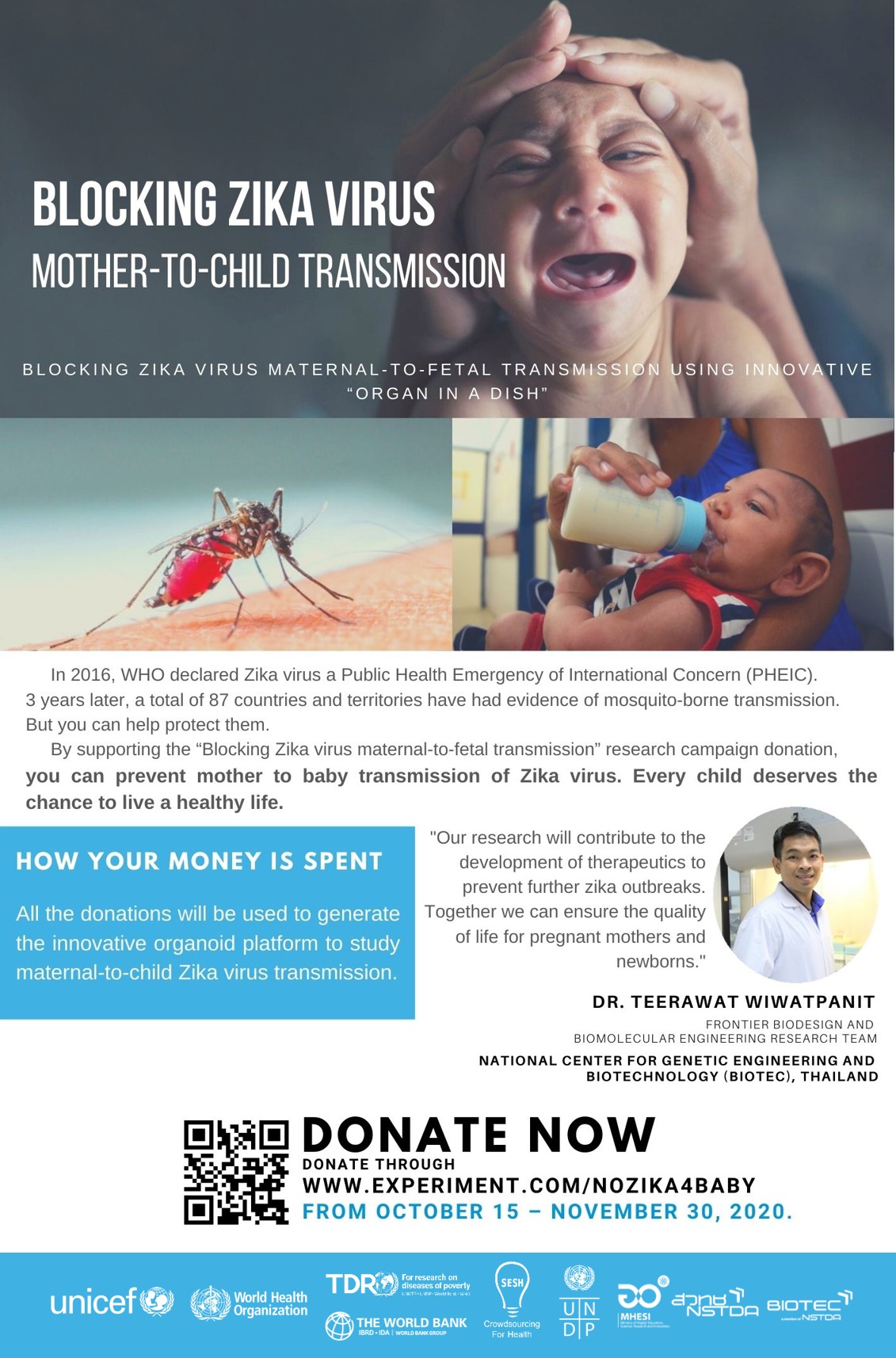In February 2016, the World Health Organization declared the mosquito-borne Zika virus a Public Health Emergency of International Concern (PHEIC) – a declaration driven by concern over links between the disease and neonatal neurological disorders including microcephaly, a birth defect where a baby is born with significant smaller head than normal. As of July 2019, a total of 87 countries and territories have had evidence of mosquito-borne transmission, according to World Health Organization (WHO). In Thailand, cases of Zika virus has been detected for at least the last 16 years, despite the relatively low number. Zika virus can be transmitted from a pregnant mother to her fetus during pregnancy. Effort and resources from the scientific community have been expended in an attempt to better understand the mechanisms of Zika virus infection including the vertical transmission from mother to her fetus. However, there is still a challenge in developing therapeutics to prevent this mode of transmission.
Blocking Zika virus maternal-to-fetal transmission is a coalition effort led by Dr. Teerawat Wiwatpanit, Researcher, Frontier Biodesign and Biomolecular Engineering Research Team, National Center for Genetic Engineering and Biotechnology Center (BIOTEC), and a consortium of researchers and medical doctors from BIOTEC and Siriraj Hospital, Thailand. The consortium aims to develop treatments to prevent the Zika virus transmission during pregnancy. “The team looks into the use of three-dimensional human endometrial organoids to develop an in vitro model to analyze the uterus cells infected by Zika virus. Not only does this model shed light upon how Zika virus infection affects the female reproductive tract and how to neutralize the virus but it also replicates a more accurate platform mimicking the real organ in the human body, making it ideal for pre-clinical trial” said Dr. Wiwatpanit. ‘Organoids’, according to the definition by the Harvard Stem Cell Institute, refer to tiny, self-organized three-dimensional tissue cultures that are derived from stem cells or primary cells. Dr. Wiwatpanit is hopeful that the success of the organoid experimental system will result in the reduction of poor infant health and lifelong neurological defects caused by the virus.
The ‘Blocking Zika virus maternal-to-fetal transmission’ gained international attention when Dr. Wiwatpanit was selected among the 5 finalists from 212 researchers across 37 countries in a crowdfunding contest to build capacity to raise funds for the project hosted the Special Programme for Research and Training in Tropical Diseases (TDR), sponsored UNICEF, UNDP, the World Bank, and WHO. The crowdfunding contest was launched by TDR in partnership with Social Entrepreneurship to Spur Health (SESH) with the goal to help researchers in the field of infectious diseases in low- and middle-income countries gain funds and supports for their social-impact research.
The donation-based crowdfunding campaigned is launched on www.experiment.com/noZika4Baby from October 15th – November 30th. The donation target is USD 8,000. “All the donations will be used to generate the innovative organoid platform to study maternal-to-child Zika virus transmission. We will make scientific research more accessible to the general public, and to keep the donors updated as to the project progress and how their donations are spent to ensure the resources are used carefully and responsibly” Dr. Wiwatpanit concluded.

